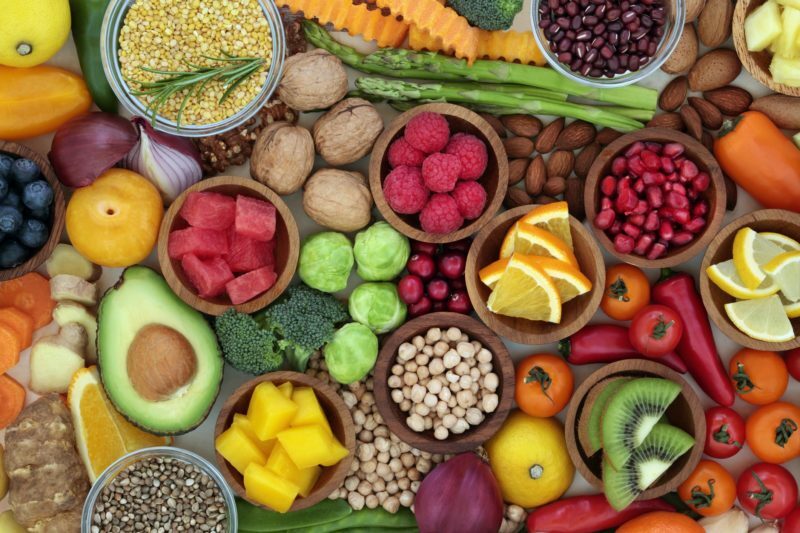Overall, according to a press release, plant-based food retail sales grew three times faster than total food retail sales, with most plant-based categories outpacing their conventional counterparts.
"The sustained rise in the market share of plant-based foods is remarkable, and makes it clear that this shift is here to stay,” said Julie Emmett, PBFA Senior Director of Retail Partnerships, in the press release. “More and more consumers are turning to plant-based options that align with their values and desire to have a positive impact on personal and planetary health. The data shows that, despite the challenges of the past two years, retailers and foodservice providers are meeting consumers where they are by partnering with brands across the entire store to expand space, increase assortment, and make it easier than ever to find and purchase plant-based foods. The potential impact of these initiatives extends far beyond the store shelf: By taking consumer concerns to heart, the industry is actively embracing its role as a key driver of change that moves us closer to a secure and sustainable food system."
Plant-Based Milk Plant-based milk dollar shares grew 4% and 33% in the past three years to reach $2.6B, while animal-based milk sales declined 2% in 2021. Plant-based milk now accounts for 16% of all retail milk dollar sales, and contributed $105M in growth, while the decline in animal-based milk equated to a loss of $264M. 42% of households purchase plant-based milk, and 76% of plant-based milk buyers purchased it multiple times in 2021.
Almond milk is the category leader, accounting for 59% of the total category, with oat milk growth making it the second-largest segment, making up 17% of category sales, up from 0.5% in 2018. Plant-based milk is driving deeper entry into the plant-based market: plant-based creamer now has a 9% share of all creamers sold; plant-based yogurt dollar sales grew 9%--three times the rate of conventional yogurt—to a 4.5% dollar share; plant-based cheese grew 7% while conventional cheese declined 2%; and plant-based ice cream and frozen deserts grew 31% over the past two years.
Plant-Based Meat 2021 plant-based meat dollar sales delivered a repeat year of $1.4B in sales, having grown 74% in the past three years, outpacing conventional meat by almost three times. Considering unit sales, conventional meat has grown 8% in the past three years, while plant-based meat grew 51% during the same period—these numbers indicate that growth in conventional meat is driven largely by inflation, and, in fact, IRI’s inflation index shows that in March 2022, U.S. retail conventional meat price per unit was up 13% compared to March 2021, while plant-based meat price per unit was down 2%. 19% of households purchased plant-based meat in 2021, up from 18% in 2020, and 64% of buyers purchasing plant-based meat did so multiple times.
Plant-based burgers continue to lead the category, but the fastest-growing plant-based meat products in 2021 were meatballs, deli slices, and chicken nuggets, tenders, and cutlets. Plant-based seafood grew 14% to $14M, but accounts for just 1% of the plant-based meat market, while conventional seafood comprises a fifth of total meat and seafood sales.
Plant-Based Eggs This category grew 42% in dollar sales in 2021. In the past three years, this category has grown more than 1,000%. With conventional egg dollar sales down 4%, plant-based eggs have grown to earn a 0.6% share of the total egg market, compared to a 0.05% share three years ago.
Related: A Fundamental Shift: Plant-Based Growth Grovara Joins Plant Based Foods Association NPEW: Tabitha Brown Discusses the Joys of Plant-Based
High Demand 62%, or 79M U.S. households, are now buying plant-based products. Increased repeat rates illustrate consumer commitment and interest. Millennials and Gen Z, which compose 47% of the population, have particularly high demand for plant-based foods. These generations are also increasing ecommerce spending, and ecommerce sales of plant-based foods grew 47% in the last year to $351M. Consumers are motivated by a desire for better personal and planetary health, and plant-based foods are positioned to meet these needs.“Product innovation is critical for plant-based categories to continue to earn a larger share of the market,” said GFI Research and Analysis Manager Karen Formanski, in the press release. “Getting more consumers to eat plant-based foods more often requires improved taste and texture to compete with animal products, more product diversity, and greater affordability and accessibility. As businesses recognize the staying power of plant-based foods, the food industry must seize these opportunities to maximize the vast potential of plant-based alternatives to compete with animal products."
These numbers come from retail sales data from SPINS. The firm looked at data within its “plant-based positioned” product attribute, added plant-based private label and subcategories, and refined the plant-based eggs category. Inherently plant-based items such as chickpeas and kale are not included. SPINS used data from the 52-week, 104-week, 156-week, and 208-week periods ending December 26, 2021. While this is generally considered the broadest available view of retail food sales, not all retailers are represented—Whole Foods Market, Trader Joe’s, and Costco, notably, do not report their scan data to SPINS or IRI.
Jay Lovelace, SPINS Chief Commercial Officer, commented: "Just when retailers were getting ahead of challenges from the pandemic and supply chain issues, record inflation is causing them to look at alternatives to help consumers manage their shopping and wellness journeys. SPINS data shows that plant-based products appear to be managing the economic issues in the U.S. better than many traditional retail products. This is a trend we expect to continue throughout this year and encourage retailers to look to expand shelf space for all plant-based products."









